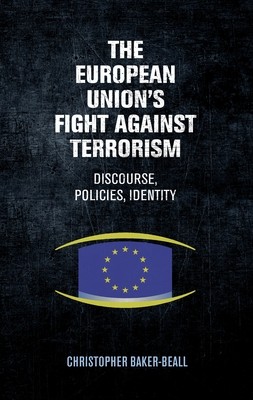
- We will send in 10–14 business days.
- Author: Christopher Baker-Beall
- Publisher: Manchester University Press
- ISBN-10: 0719091063
- ISBN-13: 9780719091063
- Format: 15.6 x 23.4 x 1.3 cm, hardcover
- Language: English
- SAVE -10% with code: EXTRA
The European Union's Fight Against Terrorism (e-book) (used book) | bookbook.eu
Reviews
Description
Since its re-emergence in the wake of the September 11 attacks, the 'fight against terrorism' has come to represent a priority area of action for the European Union. This book analyses the language of the EU's response to the terrorist threat, drawing on interpretive approaches to international relations in order to develop a discourse theory of identity and counter-terrorism policy. The book shows how the 'fight against terrorism' structures the EU response through the prism of identity, calling attention to the various 'others' that form the target of counter-terrorism policy. Through an extensive analysis of the wider societal impact of the EU's 'fight against terrorism' discourse, the author reveals the various ways in which EU counter-terrorism policy is contributing to the 'securitisation' of social and political life within Europe. An accessible structure ensures that the book will be an excellent text for students seeking to improve their understanding of discourse analysis. But it will also be of interest to academics, area-studies experts and policy makers who want to better understand the emergence and impact of EU counter-terrorism policy, as well as those studying international relations, security studies, terrorism studies or EU Politics.
EXTRA 10 % discount with code: EXTRA
The promotion ends in 15d.08:03:46
The discount code is valid when purchasing from 10 €. Discounts do not stack.
- Author: Christopher Baker-Beall
- Publisher: Manchester University Press
- ISBN-10: 0719091063
- ISBN-13: 9780719091063
- Format: 15.6 x 23.4 x 1.3 cm, hardcover
- Language: English English
Since its re-emergence in the wake of the September 11 attacks, the 'fight against terrorism' has come to represent a priority area of action for the European Union. This book analyses the language of the EU's response to the terrorist threat, drawing on interpretive approaches to international relations in order to develop a discourse theory of identity and counter-terrorism policy. The book shows how the 'fight against terrorism' structures the EU response through the prism of identity, calling attention to the various 'others' that form the target of counter-terrorism policy. Through an extensive analysis of the wider societal impact of the EU's 'fight against terrorism' discourse, the author reveals the various ways in which EU counter-terrorism policy is contributing to the 'securitisation' of social and political life within Europe. An accessible structure ensures that the book will be an excellent text for students seeking to improve their understanding of discourse analysis. But it will also be of interest to academics, area-studies experts and policy makers who want to better understand the emergence and impact of EU counter-terrorism policy, as well as those studying international relations, security studies, terrorism studies or EU Politics.


Reviews